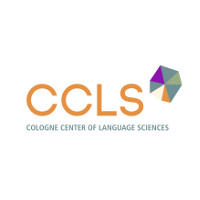Profile Module General Linguistics
The Profile Module General Linguistics is one of the five options within Specialization Module 1 which serves to develop a student’s own profile from among current specialization areas in linguistics. Students are required to choose one of these five profiles (see right column), which is later included on the final transcript. The choice of profile also determines the area the thesis is written in, meaning that the thesis supervisor will stem from the area in question.
Specialization Module 1 focusses on scientific competence in its cognitive, functional, and methodological dimensions, providing theoretical knowledge, profile-specific methodic competence, as well as the ability to think and act in a scientifically competent manner in both academic and non-academic contexts.
Please find FAQs regarding the Profile Module General Linguistics below.
What is the field of study about?
Typology
Typology is a sub-field of linguistics concerned with cross-linguistic comparison. This includes both searching for common features (universals) and determining the limits of variation among natural languages, typically demonstrated by two or more traits co-occurring in a given language (typology ).
Language diversity, field work, language documentation and description
Cross-linguistic comparison is founded on field work, language documentation and language description. The General Linguistics profile provides the opportunity to explore the foundations, methods and tools (both software and hardware) we use and to put them into practice in our Field Work seminar.
Modelling
The insights we gain concerning common and distinguishing traits among the world’s languages can help us make general statements about the nature of language itself and develop models of what characterizes human language and how it functions.
Diachrony/Grammaticalization
Language comparison is not just limited to comparing language structures and practices from all over the world, but also includes observing the different historical evolutionary stages of languages (language change). This enables us to not only take stock of linguistic diversity, but also to understand processes of diversification and to explain why languages are not all the same but rather in a constant state of change.
Language Acquisition
Language acquisition has so far mostly been described for European national languages in a Western setting. The analysis of acquisition of non-European languages, on the other hand, is still in its early stages.
What does the Cologne Department of General Linguistics do?
The areas of language diversity, language documentation, typology, modelling, diachrony and language acquisition, all of which feature prominently in the study of General Linguistics, are also commonly at the focus of projects conducted at the department.
You can find an up-to-date overview of the Institute of Linguistics’ projects here, current publications can be viewed here.
What are the prerequisites?
If you want to specialize in General Linguistics with us you should have a basic knowledge about linguistic diversity, language comparison and language typology. You should be interested in linguistic structures and non-european languages.
If you are unsure whether you are missing important basic courses, please contact your adviser.
What is the field of study not about?
General Linguistics is not concerned with knowing as many languages as possible, but rather with having an extensive knowledge of languages.
It is quite possible to be a good general linguist without a particular knack for field work.
The degree programme is research-oriented and principally prepares students for a career in research – career paths outside the university are not particularly highlighted.
Which modules is the field of study principally involved in?
AM 1-5, SM 1a, SM 2a, EM 1, EM 2
Who can I contact?
